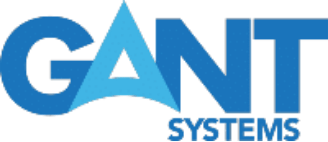Demystifying the IT Help Desk: A Comprehensive Guide for Businesses
In today's fast-paced digital world, IT has become the backbone of business operations. As technology evolves, so does the need for dedicated support to handle the complexities and challenges that come with it. Enter the IT Help Desk – a central point of contact where IT professionals assist in resolving technical issues and maintaining business continuity. For small business owners, executives, and IT professionals, understanding the intricacies of an IT Help Desk is crucial. This comprehensive blog post aims to answer the pertinent question, "What is an IT Help Desk?" while providing valuable insights into its functions, benefits, and best practices.
Functions and Responsibilities of an IT Help Desk
The IT Help Desk is not just about fixing computers; it's a multi-faceted service. At its core, the IT Help Desk offers:
- Technical Support: Addressing hardware and software issues swiftly to minimize downtime.
- Account Management: Ensuring secure access for users and maintaining their credentials.
- Incident Management: Documenting and following through on IT issues until resolved.
Types of IT Help Desk Models
There isn't a one-size-fits-all model for IT help desks. Businesses can choose from:
- In-House IT Help Desk: This model offers full control but comes with hiring and training costs.
- Outsourced Help Desk: Cost-cutting can be significant, but it requires thorough vetting to ensure quality.
- Remote Support: It provides flexible support solutions without the need for a physical presence.
Businesses must carefully assess their needs and resources to decide which model aligns best with their objectives.
Benefits of an Effective IT Help Desk
For organizations, big or small, the advantages of maintaining a reliable IT Help Desk are extensive:
- Efficiency: Prompt IT support ensures that employees stay productive, directly affecting small business output.
- Customer Satisfaction: A swift resolution to technical issues means happier customers or clients.
- Cost-Effectiveness: With proper IT support, businesses save on costly downtime and inefficient resource usage.
Understanding these benefits can be a game-changer for businesses looking to thrive in competitive markets.
Setting Up and Managing an IT Help Desk
To set up an IT Help Desk that serves your business well, consider:
- Appropriate Software: Opt for help desk tools that fit your business size and complexity.
- Staff Training: Invest in training for support staff to handle modern business tech help efficiently.
- Best Practices: Implementing industry standards, such as those from Information Technology Infrastructure Library (ITIL), can streamline help desk operations.
With the right system in place, even small business computer help becomes a manageable task.
Challenges Faced by IT Help Desks
Despite all efforts, IT Help Desks do face hurdles:
- User Expectations: Balancing the various needs of users with different tech levels can be difficult.
- Security: With constant threats, help desks must prioritize defending data and systems.
- Rapid Tech Changes: Staying up-to-date with the latest updates and tools is a relentless challenge.
However, with a proactive approach and ongoing education, these obstacles can be overcome.
Future Trends in IT Help Desk Support
Looking ahead, the trends shaping IT Help Desk services include:
- Automation and AI: Automating repetitive tasks frees up resources for more complex issues.
- Proactive Maintenance: Moving away from reactive solutions, AI helps predict problems before they happen.
- Adaptation Strategies: Businesses must prepare to integrate new technologies into their support models for seamless operation.
By staying informed on future trends, companies can position themselves to leverage the evolving landscape of IT support.
ROI Benefits of Outsourced Help Desk and IT Support
Outsourced help desk and IT support have consistently proven to be a valuable investment for both businesses and nonprofits. By adopting outsourced pricing models and dedicated support, organizations can focus on core activities, achieve cost efficiency, and significantly enhance service delivery.
Key Benefits for Businesses
Cost Reduction: Outsourcing reduces the need for in-house IT staff, which significantly lowers operating costs.
Scalability: Businesses can scale their IT support needs up or down without the commitments associated with full-time employees.
Access to Expertise: Outsourced help desks often have specialized knowledge that might be too expensive to develop internally.
24/7 Support: Many outsourced help desks provide round-the-clock support, ensuring that business operations are not hindered by technical issues.
Increased Productivity: Employees can work more efficiently with reliable and professional IT support.
Key Benefits for Nonprofits
Streamlined Operations: IT support dedicated to understanding the unique challenges of a nonprofit can streamline technology processes.
Enhanced Service Delivery: Reliable IT infrastructure allows nonprofits to deliver services more effectively.
Focused Resources: Savings from IT expenditures can be redirected towards the core mission of the nonprofit.
Data Security: Professional IT services ensure better data protection, which is critical for maintaining donor trust.
Custom Solutions: Nonprofits can benefit from bespoke IT solutions tailored to their specific operational needs.
Both scenarios exemplify the tangible returns of investing in outsourced IT services. The strategic decision to outsource can lead to improved efficiencies, financial savings, and superior outcomes for organizations regardless of their profit orientation.
Is Your Organization Operating With (or Without) an IT Help Desk?
The role and significance of the IT Help Desk cannot be overstated, especially for small to mid-sized businesses looking to grow. By understanding the various modalities and best practices of IT Help Desks, businesses can ensure that they provide effective, efficient support for their technological needs. With the knowledge of outsourcing options and an eye toward future developments, leaders can ensure their organizations are well-equipped to face the challenges of an increasingly complex IT environment. Remember, in an era where technology is king, a robust IT Help Desk is your business's lifeblood, keeping the digital pulse steady and strong.
Businesses grappling with tech issues might ponder the cost to outsource help desk services or debate whether to manage their IT in-house. The decision depends on numerous factors, but knowing what an IT help desk entails, what benefits it provides, and how to manage it effectively can make all the difference. Ultimately, an IT Help Desk acts as a pillar of support for businesses, ensuring that technology is an asset rather than an obstacle.
Ready to implement an IT Help Desk? At Gant Systems, we can help! Schedule a Discovery Call today, and find IT solutions that will save you time, money, and the unnecessary headache of trying to manage it all.





